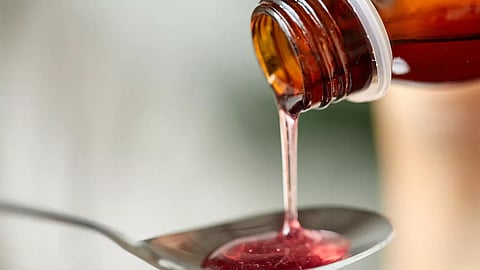
- Home
- Live Blog
- Breaking News
- Top Headlines
- Cities
- NE News
- Sentinel Media
- Sports
- Education
- Jobs

JAKARTA: Following the increasing number of fatalities among children across the country, all kinds of syrup-based medication formulae have been banned in Indonesia. Indonesia is the second country to put such a prohibition in place after Gambia.
Health Minister of Indonesia, Budi Gunadi Sadikin said, "Some syrups used by AKI pediatric patients under five were confirmed to comprise ethylene glycol and diethylene glycol that was not supposed to be there, or in extremely minute levels. The number of instances in which the risky medications were involved was not disclosed by him.
According to Dicky Budiman, an epidemiologist from Griffith University, "when situations like these arise, [all we know is] the tip of the iceberg, meaning there could be significantly more victims."
Syrup-based medication formulae are often used for young children as they find it difficult to swallow tablets. And some of the common medications including anti-inflammatory drugs need to be administered orally.
Earlier this month the Government of Gambia decided to ban some varieties of syrups. This step was triggered by the death of about 70 children across the country.
According to a report, toxins in some syrup medicines have been linked to acute kidney injury (AKI). And acute kidney injury has been the cause of death of 99 young infants this year in Indonesia. The same problems were found in the post-mortem reports of the children who died in Gambia. Following this, the World Health Organization (WHO) issued a global alert earlier this month regarding four cough syrups that were allegedly responsible for child fatalities in the country.
It is unknown whether the responsible drugs were manufactured in the country or imported from others, like in the case of Gambia. But on Thursday, Indonesian health officials recorded 200 cases of acute kidney injury in youngsters, the majority of whom were under five years old.
'Unacceptable quantities' of diethylene glycol and ethylene glycol were detected in some syrup-based formulations, which were produced by an Indian pharmaceutical business. The WHO claimed that these syrups "may have been connected with acute kidney injury." The Indonesian Health Minister confirmed the presence of the same chemical compounds in a few locally used medications.
Also Watch :